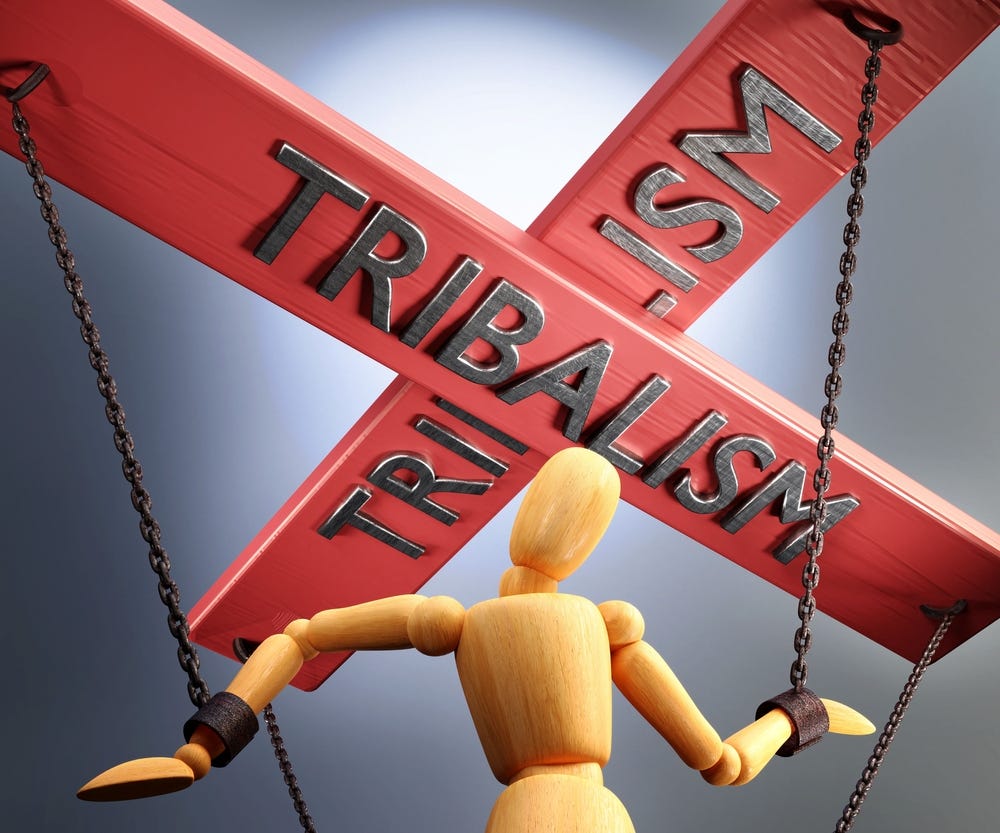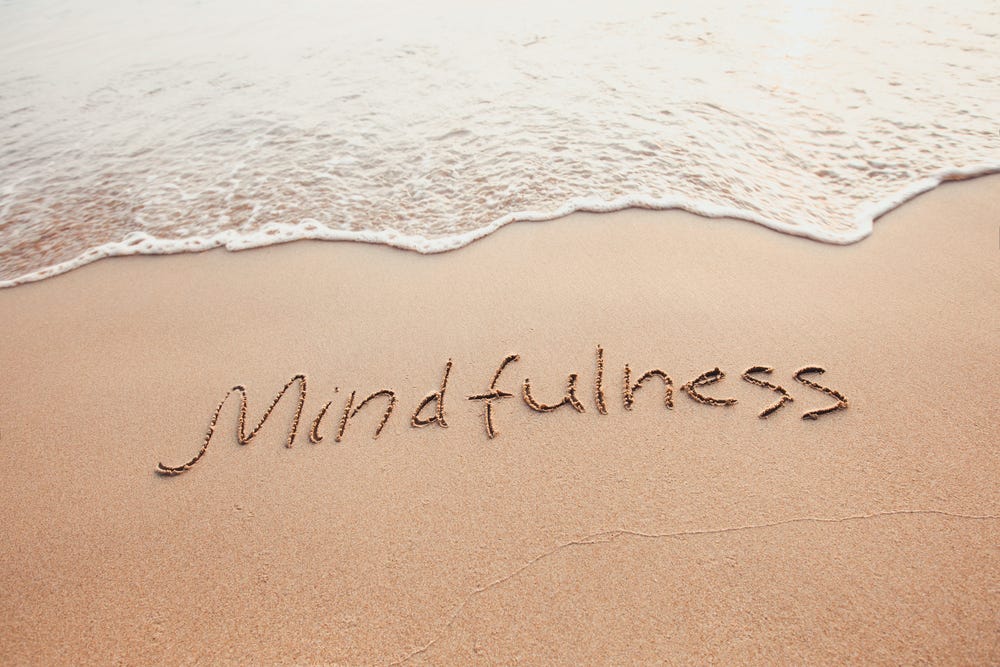E-Pluribus | December 30, 2021
Know thy enemy (and maybe you'll be surprised), the growth of tribalism, and what's missing from politics.
A round up of the latest and best writing and musings on the rise of illiberalism in the public discourse:
Victoria Parker: Conservatives and Liberals Are Wrong About Each Other
What if liberals and conservatives didn’t disagree as much as they think they do? Victoria Parker, a doctoral candidate in psychology at Wilfrid Laurier University writing at The Atlantic, uses research to suggest we often exaggerate what our opponents believe, particularly on cultural issues.
The gap that we identified between what partisans really think and what their opponents think they think shows up again and again—but only on a particular kind of issue. People have a more accurate view of the other side’s position on many standard policy issues, such as taxes or health care. But specifically on culture-war issues, partisans are likely to believe a caricatured version of the opposing side’s attitudes. These misconceptions have hardened into enduring stereotypes: liberal snowflakes and free-speech police, conservative racists and “deplorables.”
[…]
Where do these ideas come from? Partisan media outlets have an incentive to stoke their audience’s outrage by making extreme views seem commonplace. In our work, we saw that the more people reported consuming partisan news (a category in which, drawing on the work of other researchers, we included Fox News and MSNBC), the more they believed in a caricatured version of the other side.
People’s perceptions of others are powerful, even when they’re wrong. We found that people disliked their opponents primarily for the fringe views most opponents didn’t actually hold. Worse still, partisans who disliked their opponents most were least willing to engage with them, which likely forecloses the chance to have their misperceptions corrected through real-life personal contact. Instead, an oversimplified, exaggerated version of the other side’s views is allowed to live on inside of everyone’s head.
What’s more, partisans told us they were hesitant to voice their opinions about the most extreme positions expressed by people on the same side of the spectrum. For example, liberals were less keen to talk publicly about the downsides of censoring free speech than they were to talk about the benefits of universal health care. So although a majority of liberals opposed censorship, their reluctance to criticize it openly might have led conservatives to think that most on the left favored it.
Read it all.
Ayaan Hirsi Ali: Tribalism has come to the West
When it comes to tribalism, Ayaan Hirsi Ali isn’t just theorizing given her upbringing. Ali, writing for Unherd, says her experiences in Somali have her worried about the direction of West in adopting some of the worst aspects of the real tribalism under which she grew up.
In Somalia, where I was born, my mother was blindly loyal to our clan. So much so that, apparently, she claimed she could detect the malicious intentions of an individual from a different clan just by the structure of his forehead. She would, for example, often warn my father that someone was trying to take advantage of him, purely by the way he frowned.
[…]
In tribal communities, neutral institutions of civil society that Westerners take for granted — such as the police, impartial courts, and the rule of law — simply do not, and cannot, exist. In such societies, everything is tribalised, and the task of building civic institutions is laden with difficulties.
In Somalia, I was taught to be suspicious of anyone from a different clan, to always think harm was coming my way and to be guarded against anyone that was “other.” I come from the Darod clan, and was taught to constantly listen to accents, examine face shapes and overanalyse all non-verbal cues, searching for any indications of a different tribe. I can still identify a Somali (and usually their clan) from across a room.
[…]
In the end, because of such protracted tribal tensions, Somalia collapsed into civil war. Every attempt at mediation proved incapable of handling the deep-seated mistrust and hatred that accumulated by each clan over the years; tribal elders, reluctant to compromise, could not de-escalate the situation. With such high levels of distrust, the conflict spiralled into bloodshed.
While such violence is yet to seize America, all the tribalist ingredients are present. There is a blind commitment to one party or the other; emotions are running high; there is a lack of trust in civic institutions. If such tribalism isn’t overcome, it’s only a matter of time before the situation escalates.
Read it all here.
Aaron Ross Powell: Mindfulness Is What's Missing From the Political Arena
Part of the mission of Pluribus is promote dialogue between ideological opponents. As we close out 2021, our final item is from Aaron Ross Powell at Reason suggesting that a “virtuous person will be ethical, mindful, and wise,” and rather than seeking to simply defeat and punish our enemies, politics should be more about understanding our differences and seeking solutions.
[…] Americans jump to politics as a universal solution, frequently use it not to solve our problems but to punish our enemies, and rarely give it the mindful attention it needs to produce beneficial results. We both misuse politics and overuse it. Taken together, these create a vicious political environment, and that viciousness then manifests as all the problems people point to when they gripe about the sorry state of politics.
Good politics demands virtuous citizens, because only virtuous citizens can be skillful citizens. Our political culture instead incentivizes vice, creating problems that go deeper than bad policies. Politics makes us worse.
Imagine a virtuous person. How will she behave? What trains of character will she embody? Philosophers and theologians have debated those questions for eons, but it's possible to establish a broadly acceptable basic sketch: A virtuous person will be ethical, mindful, and wise. Yet our political sphere tells us to be precisely the opposite, provides us with strong incentives to do so, and then celebrates and rewards those among us who stray the furthest from that virtuous ideal.
Let's start with ethics. In our interactions with others, the two most basic rules, taught in kindergartens around the world, are "don't hit people" and "don't take their stuff." While we should also seek to help each other, at the minimum we should avoid causing harm or taking from others what they haven't given freely. Yet the political sphere fundamentally depends on rejecting both mandates. The state's power comes from its ability to bring violence to bear, and everything the state does is paid for with resources its citizens were forced to turn over.
When you and I enter the political sphere, we engage with each other in ways impermissible in the rest of civil society. We do hit each other, or at least ask someone else to do the hitting on our behalf. We do take from each other, or at least ask someone else to take for us. What's worse, we don't approach such acts with a recognition of their troubling nature or any sense of caution about their misuse. Instead, we view political action as admirable and sneer at anyone who refuses to participate. Yes, there might be times when applying violence really is the only way. But our culture sees politics as the first solution, not the last resort.
Read the whole thing.
Around Twitter
Greg Lukianoff of the Foundation for Individual Rights in Education explains cancel culture on a recent podcast:
Glenn Greenwald on how the trans rights / women’s sports collision is treated (or ignored) by the mainstream media:
Finally, some thoughts on saying what you believe and believing what you say:
See you in 2022!











